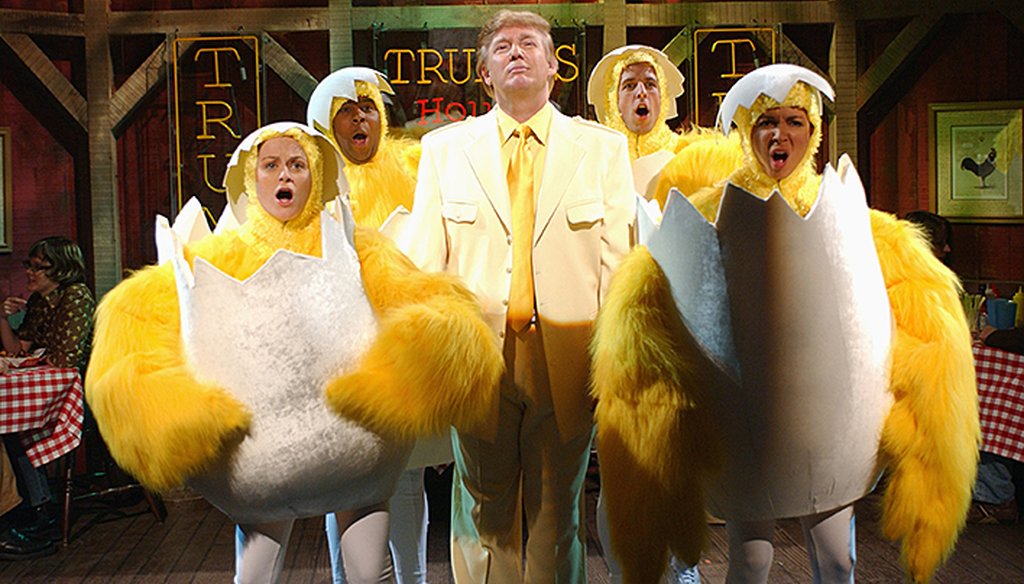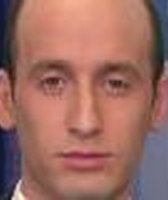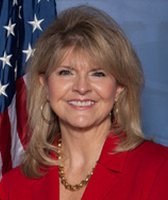Get PolitiFact in your inbox.

Donald Trump will host "Saturday Night Live" on Nov. 7, something the billionaire presidential candidate hasn't done since 2004, when his show "The Celebrity Apprentice" took off on NBC. (NBC photo)
Republican presidential candidate Donald Trump will return to reality television, in a way, when he hosts Saturday Night Live Nov. 7.
You might be wondering, like we did, if the government’s "equal time" rule means Ben Carson, Jeb Bush, Marco Rubio, Ted Cruz and the rest of the Republican presidential field will each get a shot at hosting the show.
The answer, PunditFact found, is no. But candidates could score some free air time in certain markets if they ask for it.
The inner workings of the "equal time" rule are complicated and often misunderstood, starting with that phrase itself.
"I know in the culture it’s often called ‘equal time’," said William E. Lee, a professor at the University of Georgia Grady College of Journalism and Mass Communication and co-author of The Law of Public Communication. "But it’s really a misnomer."
Experts prefer the less colloquial "equal opportunities," which guarantees qualified candidates the same free time in a comparable time slot and audience.
Don’t confuse it with the fairness doctrine, a defunct Federal Communications Commission rule that aimed to ensure balanced coverage of controversial issues.
Here are some points to remember.
‘Equal opportunities’ is a right, but it’s not a given
The equal opportunities rule kicks in when a broadcast station — so, not CNN, Fox News Channel or MSNBC — allows the face or voice of a legally qualified candidate to appear on the air.
So cable is out. So are broadcast programs that are covering the news, such as a news interview show like NBC’s Meet the Press or even an interview on The Tonight Show with Jimmy Fallon.
SNL is an entertainment program on a broadcast network, so it isn’t exempt. But that doesn’t mean the rest of the Republicans get to host SNL opposite musical guest Sia, or whoever (as much as you might want a Jim Gilmore/Gilmore Girls skit).
"No candidate is entitled to time in the same program," Lee told us.
They are entitled to free time within the comparable broadcast class of time. So in SNL’s case, probably late-night weekends.
Candidates have to meet eligibility criteria
Candidates aren’t just given equal opportunities. They have to ask news stations for it.
And they have to be legally qualified in the states where an NBC affiliate aired the episode.
First, they have to be qualified to run for president. Then, they have to show they are either on the ballot in a state where an NBC affiliate aired SNL or, since it’s so early in the process that many candidates are not on ballots, made a "substantial showing" of their candidacy in that state.
Proving a "substantial showing" could mean speeches, fundraising or employing workers on the ground. In other words, just one speech in Manchester, N.H., isn’t going to cut it for a free time claim in a regional TV market.
At this point, most of the campaign activity has been in Iowa, New Hampshire, South Carolina and Nevada. So it’s reasonable to think that requests for free time from Trump’s opponents would likely be most easy to prove in those markets or a few more depending on the candidate, but not the whole country.
A great way to understand this is by looking at what happened after Democratic presidential candidate Hillary Clinton appeared in one SNL skit on Oct. 3. In the skit, Clinton plays Bartender Val consoling Hillary Clinton, as portrayed by SNL cast member Kate McKinnon.
The Sunday after the episode aired, NBC manager for affiliate relations Jean Dietze sent a message to affiliate general managers letting them know about Clinton’s free use and explaining that they needed to post a notice into their political file, which is maintained by stations online for public inspection and campaigns. Here’s a sample notice Dietze laid out for affiliates that aired "feed one" of SNL:
Former Secretary of State Hillary Clinton, a candidate for the Democratic nomination for President in the 2016 national election, appeared without charge on NBC's "Saturday Night Live" for a total period of 3:12 (three minutes and twelve seconds) commencing at 11:53:01 PM EDT on October 3 and ending at 12:01:44 AM EDT on October 4, 2015. Station [call sign], [community of license], is affiliated with the NBC Television Network and broadcast the October 3 episode of "Saturday Night Live," including the segments in which Secretary Clinton appeared.
So Democratic presidential candidates, not Republicans yet, would be entitled to ask for three minutes and 12 seconds of free time in those markets — if they are legally qualified.
When an attorney for little-known Democratic challenger and Harvard University law professor Larry Lessig filed for free time on 47 affiliates, NBC responded by asking for proof that he is a legally qualified candidate, Variety reported. (A spokesman for Lessig did not return messages seeking additional comment, and an NBC spokeswoman declined to comment for the story.)
It’s up to the affiliate stations to determine if they are in a state where Clinton and her competitors are both on the ballot. Candidates have a week to ask for the free time.
So what do they win?
Let’s say a legally qualified candidate asks for and receives an equal opportunity.
When the stations agree that a candidate’s claim for free time is valid, the station loses all control over what happens in that slot. The candidates are entitled to do or say whatever they want, and the station can’t edit it out.
"This is why broadcast station managers absolutely hate free time," Lee said,
Of course, we won’t know how many minutes Trump may actually have been seen or heard as the SNL host until the next morning. Since we can assume he won’t be in every skit or the musical performance, let’s just say the network counts 25 minutes of free time from a 90-minute show.
This opens up NBC affiliates "big time" in those markets where Trump has several legally qualified opponents, Lee said, though NBC’s top dogs must have realized a ratings bump would be more beneficial than a potential avalanche of candidate claims.
"Lorne Michaels isn’t just doing this without consultation from NBC’s management and lawyers," Lee said.
Practically, a candidate may not actually want 25 minutes of uninterrupted time. He or she may negotiate a shorter, more strategic block or blocks of free time in markets where both Trump and the candidate are legally qualified competitors.
Often, the network negotiates the request for free time on behalf of the affiliates, said Andrew Jay Schwartzman, a Georgetown Law professor who ran the Media Access Project for 35 years before the nonprofit folded.
We’ve seen this before
The equal opportunities rules really have the most impact at local races, Schwartzman said, particularly radio stations that serve as the principal source of information for some areas.
But we have seen this play out before on a national scale, and it involved SNL.
Al Sharpton hosted SNL as a Democratic presidential candidate on Dec. 6, 2003.
The equal-time discussion around Sharpton’s episode wasn’t lost on the cast. Former SNL cast member Jimmy Fallon opened the show as NBC Entertainment president Jeff Zucker explaining how all of the other eight candidates would get their equal amount of time on NBC programs in upcoming weeks
"We’ve made a negative into a positive and done what we do best here at NBC: Turn lemons into television programming," he said, before leading into how Sen. John Kerry would play a sadistic monster holding Detective Olivia Benson hostage on that week’s episode of Law and Order: SVU.
Sen. Joe Lieberman, Fallon joked, would star in a special called Hanukkah in Connecticut "only on NBC, Wednesday, Dec. 17, 1:45 a.m."
In reality, an attorney for Lieberman arranged for Lieberman to receive 28 minutes of free air time on some NBC affiliates in California and Missouri.
He didn’t get SNL — he got a town hall.
Our Sources
Interview with William Lee, University of Georgia professor at the Grady College of Journalism and Mass Communication, Oct. 19, 2015
Interview with Andrew Jay Schwartzman, Georgetown Law professor and expert on telecom policy, Oct. 19, 2015
Interview with Bobby Baker, FCC spokesman, Oct. 19-20, 2015
Wall Street Journal, "Clinton’s SNL cameo could entitle challengers to free air time," Oct. 7, 2015
The Boston Globe, "In Lieberman camp, a lawyer takes on the fine print," Jan. 25, 2004 (accessed via LexisNexis)








































